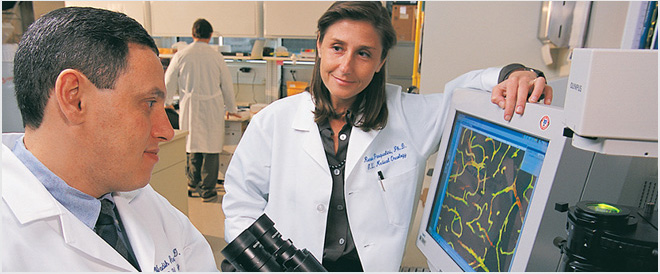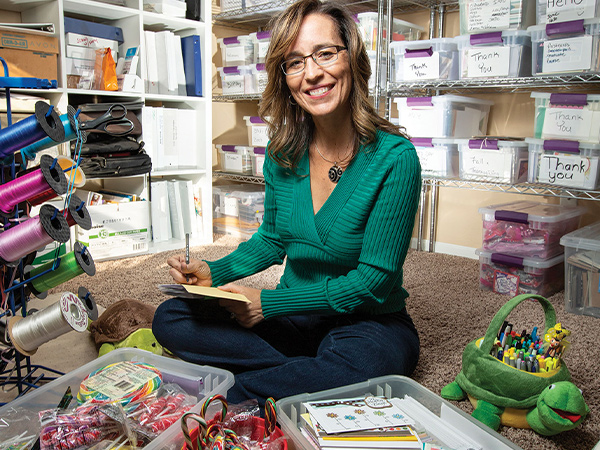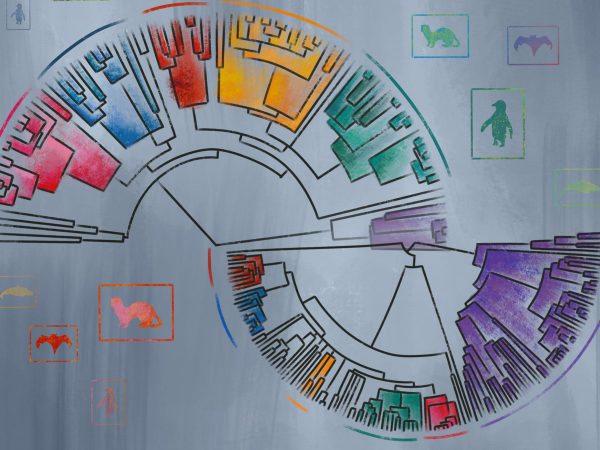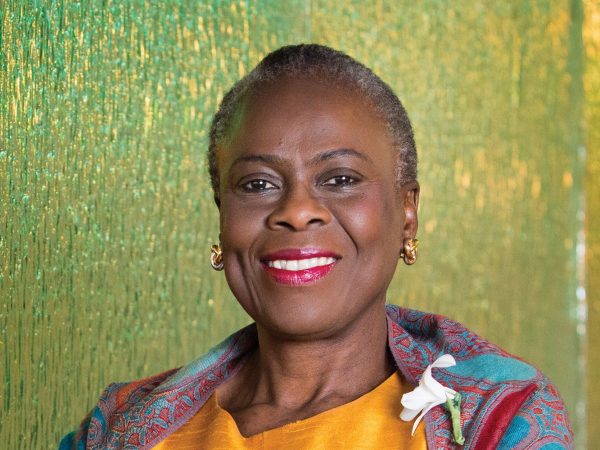Dr. Renata Pasqualini: Targeting Tumors’ Blood Supply
Cancer researcher Renata Pasqualini, PhD, takes aim at cancer with novel approaches to developing targeted diagnostic, imaging, and therapeutic strategies.
As a child growing up in Brazil, Renata Pasqualini, PhD, dreamed of becoming an oceanographer, but that changed after her mother was diagnosed with breast cancer. Her mother’s cancer was treated aggressively with surgery and radiation. It was “a success story,” says Dr. Pasqualini, albeit one with long-term consequences.
“My mom still suffers from severe lymphedema because of her surgery,” she explains. “That hit me very hard at the age of 12.”
The experience of her mother’s successful treatment – and its lasting effects – motivated Dr. Pasqualini to pursue a career in medical research and to focus on developing innovative therapeutics that more specifically target disease in order to improve care and reduce side effects.
In 1999, as an early-career scientist in her first faculty position, Dr. Pasqualini earned a grant from the American Association for Cancer Research (AACR) to do just that. Her project, “Targeted Delivery of Genes to Angiogenic Vasculature,” was awarded an AACR-Susan G. Komen Breast Cancer Foundation Career Development Grant.
The project’s goal was to identify unique biomarkers in tumor vasculature – the blood vessels within a tumor – to enable novel targeted therapeutics for breast cancer patients.

“I’ve been tremendously blessed with resources to evolve innovative ideas in association with the AACR,” she says.
Dr. Pasqualini earned her doctorate in biochemistry from the Ludwig Institute for Cancer Research and the Institute of Chemistry at the University of Sao Paulo in Brazil. Following the completion of her thesis, she pursued her postdoctoral training at Harvard University.
Working in a joint laboratory with her husband and longtime scientific partner Wadih Arap, MD, PhD, this research team made pioneering discoveries to identify “molecular signatures” for cells lining blood vessels in healthy tissue and tumors in order to specifically target therapeutics to cancer.
“The ability to map molecular addresses in the body – particularly blood vessels nourishing diseased or healthy tissue – so you can localize payloads at will has opened up enormous avenues for research, drug development, and imaging, and is very translational and very relevant for cancer,” she says.
In 2012, Dr. Pasqualini earned her second grant from the AACR, receiving the Caring for Carcinoid-AACR Grant for Carcinoid Tumor and Pancreatic Neuroendocrine Tumor Research. The project focused on targeting the vasculature of pancreatic neuroendocrine tumors while limiting the effects on normal, healthy tissues.
Over the course of the two-year grant and subsequent yearlong extension, Dr. Pasqualini and her team demonstrated a specific tumor-targeting and -binding approach that may lead to important clinical studies to test its efficacy in patients, according to a review of the studies resulting from the grant.
Dr. Pasqualini is currently the associate director for translational research at the University of New Mexico Cancer Center and co-lead of the center’s program in experimental therapeutics and drug discovery. She holds the Maralyn S. Budke endowed chair in cancer experimental therapeutics and is a professor in the Department of Internal Medicine at the school.
“Unfortunately, there’s a global crisis with research funding and it’s sad to see,” she says. “My hope is that the AACR revives the confidence in importance of philanthropic support for biomedical research and the ability of science and technology to really evolve practical therapies against cancer.”
The AACR is the first and largest cancer research organization in the world with the mission to prevent and cure all cancer by promoting research, education, communication, and collaboration.
For decades, the AACR has championed researchers like Dr. Pasqualini early in their careers, to provide support for them to explore innovative approaches and launch successful careers that benefit cancer patients.
The AACR supports every facet of high-quality, innovative cancer research, and works to maximize the impact of every dollar raised to support cancer researchers and research. Your donation helps cancer researchers like Renata Pasqualini find the clues to tomorrow’s cures.
Please help fund the future of cancer science today.




